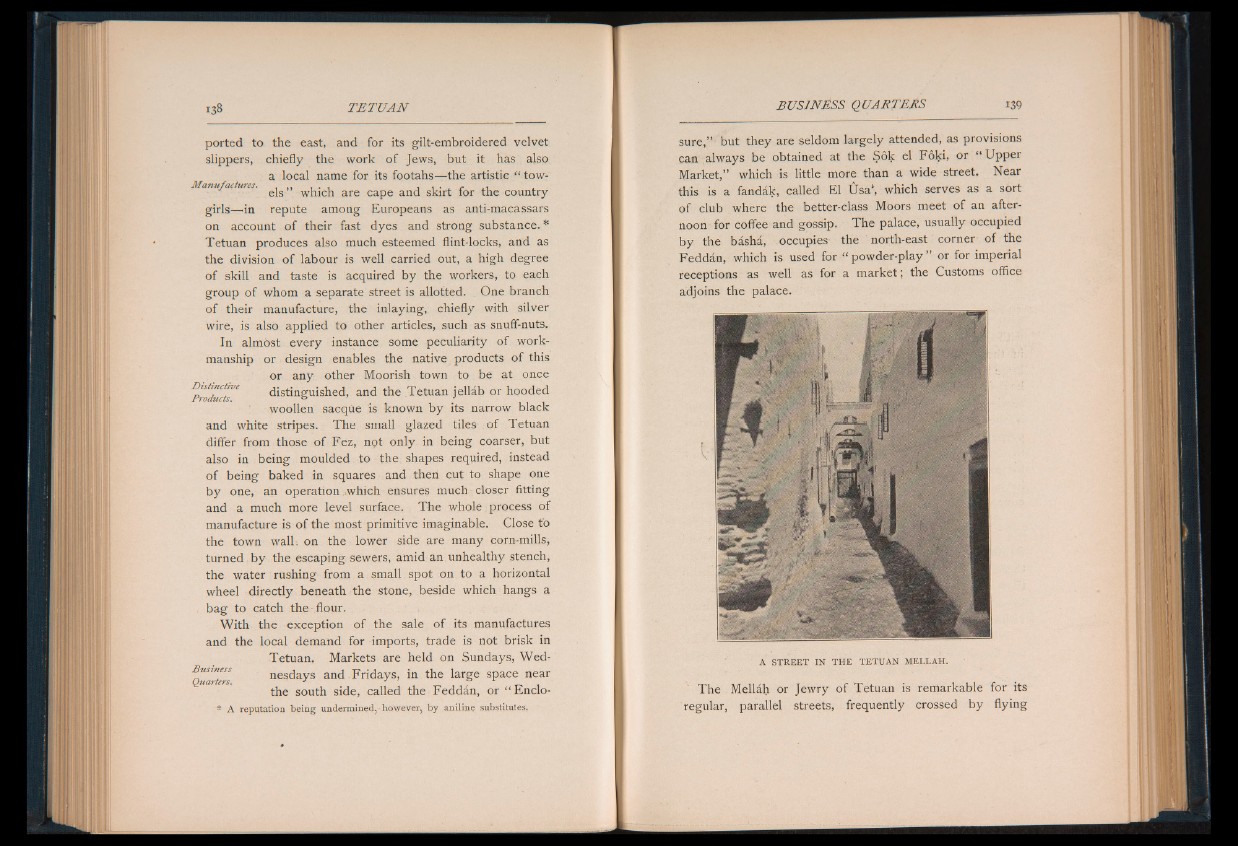
ported to the east, and for its gilt-embroidered velvet
slippers, chiefly the work of Jews, but it has also
a local name for its footahs— the artistic “ tow-
Manufactures. ^ ,, are cape an(j skirt for the country
girls—'in repute among Europeans as anti-macassars
on account of their fast dyes and strong substance. *
Tetuan produces also much esteemed flint-locks, and as
the division of labour is well carried out, a high degree
of skill and taste is acquired by the workers, to each
group of whom a separate street is allotted. One branch
of their manufacture, the inlaying, chiefly with silver
wire, is also applied to other articles, such as snuff-nuts.
In almost every instance some peculiarity of workmanship
or design enables the native products of this
or any other Moorish town to be at once
Product™ distinguished, and the Tetuan jellab or hooded
woollen sacque is known by its narrow black
and white stripes. The small glazed tiles of Tetuan
differ from those of Fez, not only in being coarser, but
also in being moulded to the shapes required, instead
of being baked in squares and then cut to shape one
by one, an operation .which ensures much closer fitting
and a much more level surface. The whole process of
manufacture is of the most primitive imaginable. Close to
the town wall, on the lower side are many corn-mills,
turned by the escaping sewers, amid an unhealthy stench,
the water rushing from a small spot on to a horizontal
wheel directly beneath the stone, beside which hangs a
bag to catch the - flour.
With the exception of the sale of its manufactures
and the local demand for imports, trade is not brisk in
Tetuan. Markets are held on Sundays, Wed-
^Quartlrl nesdays and Fridays, in the large space near
the south side, called the Feddan, or “ Enclo-
* A reputation being undermined, however, by aniline substitutes.
sure,” but they are seldom largely attended, as provisions
can always be obtained at the Sok el Foki, or “ Upper
Market,” which is little more than a wide street. Near
this is a fandak, called El lis a 1, which serves as a sort
of club where the better-class Moors meet of an afternoon
for coffee and gossip. The palace, usually occupied
by the basha, occupies the north-east corner of the
Feddan, which is used for “ powder-play ” or for imperial
receptions as well as for a market; the Customs office
adjoins the palace.
A STR E E T IN THE T E TU AN MELLAH.
The Mellah or Jewry of Tetuan is remarkable for its
regular, parallel streets, frequently crossed by flying